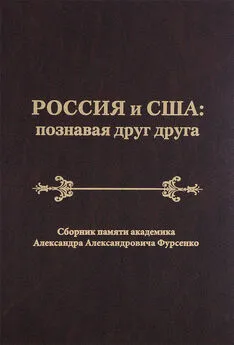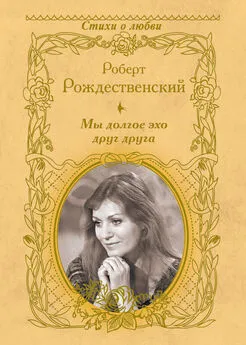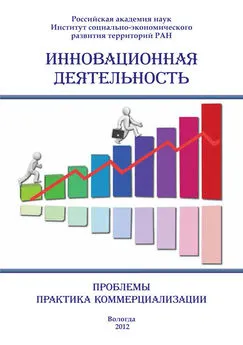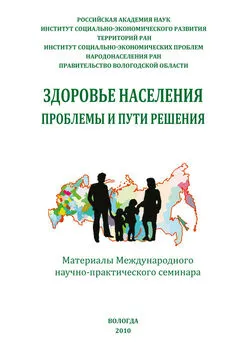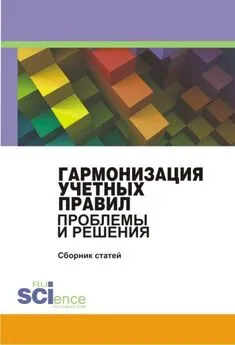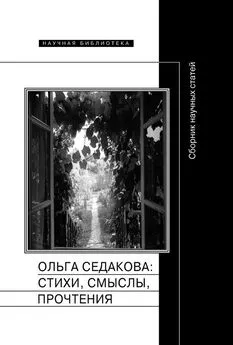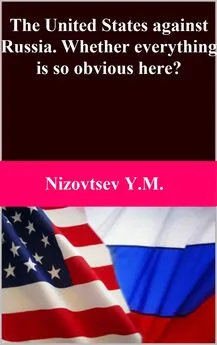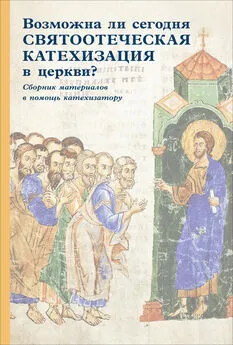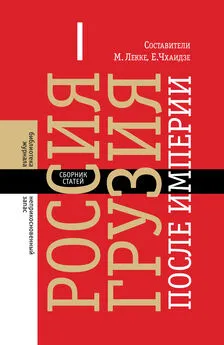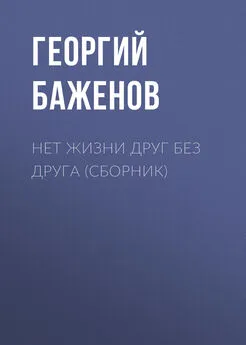Сборник статей - Россия и США: познавая друг друга. Сборник памяти академика Александра Александровича Фурсенко / Russia and the United States: perceiving each other. In Memory of the Academician Alexander A. Fursenko / Russia and the United States: perce
- Название:Россия и США: познавая друг друга. Сборник памяти академика Александра Александровича Фурсенко / Russia and the United States: perceiving each other. In Memory of the Academician Alexander A. Fursenko / Russia and the United States: perceiving each other. In Memory of the Academician Alexander A. Fursenko
- Автор:
- Жанр:
- Издательство:Литагент Нестор-История
- Год:2015
- Город:Санкт-Петербург
- ISBN:978-5-4469-0546-1
- Рейтинг:
- Избранное:Добавить в избранное
-
Отзывы:
-
Ваша оценка:
Сборник статей - Россия и США: познавая друг друга. Сборник памяти академика Александра Александровича Фурсенко / Russia and the United States: perceiving each other. In Memory of the Academician Alexander A. Fursenko / Russia and the United States: perce краткое содержание
Россия и США: познавая друг друга. Сборник памяти академика Александра Александровича Фурсенко / Russia and the United States: perceiving each other. In Memory of the Academician Alexander A. Fursenko / Russia and the United States: perceiving each other. In Memory of the Academician Alexander A. Fursenko - читать онлайн бесплатно ознакомительный отрывок
Интервал:
Закладка:
Chapter 10, which describes the history of the Gintsburg Circle’s successes and its struggle with the emigration panic, is entitled “Politics without Prophecy”, a friendly swipe at Jonathan Frankel’s stress on the seminal role of the Jewish intelligentsia in setting the political agenda for Russian Jewry and its vilification of the Gintsburg Circle. [196] Prophecy and Politics: Socialism, Nationalism , & the Russian Jews, 1862–1917 (Cambridge: Cambridge UP, 1981). The longer time frame of Frankel’s study accounts in part for regarding early Jewish socialists and proto-Zionists as prophetic. Their actual role in the early 1880s was less impressive and even contributed to the crisis. See Frankel’s chapter 2.
Klier’s study supplements the accounts of 1881–2 told by others, including Frankel, by shifting focus from the defiance of Populist and emigrationist Jews to the insider politicking of their elite leaders, embodied by the Gintsburg Circle. Klier provides “inside stories” previously not widely known, revising the usual version of the turn toward reaction in the government’s policy toward Jews. And he has brought the Jews themselves into the story as active participants rather than passive recipients of an unrelenting antisemitism allegedly pervading Alexander III’ regime, by describing and documenting the disagreements in their own ranks as well as the positive reception their leaders received in higher governing circles.
That being the principal contribution of Klier’s study, he has not neglected other dimensions of the Russian upheaval of the early 1880s. The genuinely popular Jewish response to the pogroms is revealed not only in the panicky enthusiasm for emigration, but by the sudden surge in attendance of selihot (repentance prayer) ceremonies responding to the pogroms and held in numerous synagogues. Besides connecting Jewish communities with a familiar tradition, the services also discussed the politics of the pogroms and groups not normally attending synagogue, such as students, swelled attendance at the selihot ’s. Parallel to the mixed and complex views he describes between governing circles and Jewish leaders. Klier also reveals the diversity of views within Russian society, surveying merchants, journalists, and radicals, carefully distinguishing differences among socialists, Narodovol’tsy , and Chernoperedel’tsy , while noting that, with few exceptions, the majority of Populists in the early 1880s looked favorably on the pogroms as the harbingers of peasant revolution. Klier’s version of the 1881–2 pogroms, besides being a series of malevolent attacks on Jews, become a vast social and political upheaval, focused on the Jews but also revealing a broad synchronic portrait of Russian government and society moving in response to them.
In keeping with the documentation in his earlier studies [197] Russia Gathers Her Jews: the Origins of the Jewish Question in Russia, 1772–1825 (DeKalb: Northern Illinois UP, 1986); and Imperial Russia’s Jewish Question, 1855–1881 (NY: Cambridge UP, 1995).
of the government’s sincere efforts to assimilate Jews to the state’s own order and needs, Klier distinguishes in the present book between Ignatiev’s hostility and the continuing willingness to accommodate Jewish needs by other top officials, including Alexander III, who deplored the pogroms and met with Jewish representatives to discuss responses to them. Indeed, in this view, Ignatiev stands out as the revisionist and extremist, [198] Klier, Russians, Jews, and the Pogroms of 1881–1882 , p. 327.
while the personal antisemitism of many officials is shown to have been tempered by their commitment to maintaining public order and Jewish good will.
Be that as it may, the fact remains that in the end Ignatiev “and his minions” had their way in that the May Laws of 1882 (placing additional restrictions on Jewish mobility) were adopted, meetings and contacts between government and Jewish leaders notwithstanding. Although the Laws could have been even more onerous without the input of the Jewish leadership, as Klier suggests, Jewish disabilities were increased, not relaxed, and violent anti-semites took greater encouragement in the ensuing period from the government’s apparent support. How and why that happened despite Ignatiev’s replacement by the more accommodating Count Dmitrii Tolstoi is not entirely clear. What did Alexander III say in those meetings with Jewish leaders? How did government bureaucrats, despite Ignatiev’s departure, manage to turn the tragedy of the pogroms to the Jews’ disadvantage? It’s clear that “Ignatiev-ism” in governing circles outlived Ignatiev’s own departure. Given the interactive nature of pogrom politics in 1881–82, was this outcome the result of over-reaction to the pogroms by the Jewish masses and their journalist spokesmen, or of the “disloyalty” of those who turned to emigration and socialism? Or was it due to the institutional strength of an anti-Jewish bias that prevailed over the reservations and mixed views of key government figures? All the questions Klier raises have not been answered, yet his study has elevated the debate by disproving myths about the pogroms that have been repeated in textbook accounts of 1881–2 events, presenting a more authentic version of what transpired in higher government circles and among Jewish leaders, obliging future studies to rise to a higher and more nuanced level.
Klier shows that in the early 1880s Jewish interests received a hearing, informal but influential, within the Russian government. Besides the Gintsburg Circle’s personal contacts, an attentive, contentious, and vibrant Russian language Jewish press publicized Jewish views. Journals such as A. E. Landau’s Voskhod, or Sion , edited by Lev Pinsker – an acculturated, moderate physician, trained at Moscow University – argued the Jewish cause. The extent of Jewish acceptance of and acceptance into Russian society and its institutions has normally been overlooked in numerous studies whose leitmotif has been the exclusion of Jews rather than their inclusion. But the question of the actual integration of Jews into Russian Imperial society has receiving increased attention recently, most notably in Ben Nathan’s influential Beyond the Pale . [199] Beyond the Pale: the Jewish Encounter with Late Imperial Russia (Berkeley: Univ. of California Press, 2002).
Natan Meir’s 2006 Slavic Review article continued that trend. [200] Meir, “Jews, Ukrainians, and Russians in Kiev: Intergroup Relations in Late Imperial Associational Life”, Slavic Review , 65/3 (Fall 2006): 475–501.
Meir’s book-length study of Jewish Kiev has not followed through with that theme; on the contrary, it has all but argued the converse. [201] Kiev: Jewish Metropolis. A History, 1859–1914 (Bloomington: Indiana UP, 2010).
From viewing the history of Kiev’s Jews as a part of the Russian mainstream, Meir has now put more stress on what set them apart.
His claim is twofold: By the late 19th Century Jews had become a dominant economic force in Kiev, when their rate of migration to the city outstripped all other groups, and when they became its largest non-Orthodox confession; and, at the same time, Meir contends, they had become a real community, despite the restrictions placed on Jewish residence, regular expulsions, and the unending enmity of the gentile majority. There is considerable truth to both claims. Under the leadership of their wealthy elite, headed by the Brodsky family, whose beet sugar fortune made possible their role as the principal donors to Jewish educational, religious, and welfare institutions, Kiev’s Jews found a permanent and indispensable, albeit precarious, position in the city’s social and economic life. The prominence of the Brodsky’s and other wealthy Jews both embodied and symbolized the commercial dominance of Kiev‘s Jews, who constituted 75 % of first-guild merchants within one decade of their first legal settlement in the city. [202] Ibid., p. 38.
This dominance was complemented by the receptivity of Jewish hospitals and schools to gentiles, and both facilitated relations between open-minded members of the city’s Christian elite and wealthy, acculturated Jews.
Yet much of the book is inward-looking, treating the mutual relations among Jews and Jewish institutions. Kiev is little more than the stage setting for their affairs. The “Jewish Metropolis” of the title is thus an ambiguous characterization, suggesting Jewish hegemony, if not dominance, of a Slavic capital, but actually describing how the Jews constituted their own “metropolis”, self-sufficient and self-sustaining within the limits mentioned above. However, for a study set in the vibrant Russian and cosmopolitan center (arguably, the Empire’s third city) one misses a sense of Jews moving about in that larger urban, Slavic space. Even the acculturated and wealthy elite, the Jews’ most viable and influential link with the power and character of greater Kiev, is discussed principally in its relation with Jewish institutions and projects. No very concrete sense is evoked of how its members navigated their way in the alien yet attractive world of urban, modernizing Kiev. Does this represent a deliberate change of emphasis on Meir’s part, or simply an oversight, perhaps based on an implied understanding that the earlier article had treated the other side of the story and needn’t be repeated?
The case for the former possibility is strong. Assessing the communal nature of Kiev’s Jews must, in the first instance, take into account the severity of the conditions militating against community of any kind and leading to a tendency to draw together. Meir provides plenty of evidence of the obstacle to community formation among Kiev’s Jews. The only Jews legally allowed permanent residence in the city were first-guild merchants, and although other categories were granted temporary residence, the greatest number of the Jewish population were “illegals” in managing to live and even do business in Kiev without legal permission. Although that spoke to the bribability of Kievan officialdom and the resourcefulness of Jews in evading the law, legality was enforced frequently and harshly enough to make life in Kiev for most Jews an anxious and precarious experience, ever threatened with sudden expulsion. The hostility of most Russian, Polish and other Christian residents, reinforced by the known illegal status of most Jews and the open antisemitism of the city’s leading newspaper, encouraged the popular belief that Jews did not enjoy or deserve the protection of the law. That erroneous belief fostered frequent lawless, violent outbursts against Jews, especially after 1881, heightening the insecurity already felt from their residential status. It made Kiev not only a “Jewish metropolis”, but the capital city of antisemitism.
While all of this legal and extra-legal hostility toward Kiev’s Jews surely helped to draw them together against a common and seemingly ubiquitous enemy, it also created a tension between close community ties and the urge to acculturate or assimilate to Christian, Russian culture and society. To be sure, far from all Jews had the inclination or opportunity to adopt Russian ways, let alone assimilate or convert to Orthodoxy. Yet the bustle and opportunity for Jews in Kiev, indeed, the very closeness of urban relations, did encourage and maintain a steady, growing movement toward acculturation. The very prominence of Jews in trade to and from the city and the limits placed on Jewish residence made for much coming and going, meaning that community for many was a fleeting experience. Finally, the great wealth gap among Jews further divided the community in ways that the philanthropic nurturance of the needy by the wealthy elite could not completely offset. Wealthy Jews lived in different, more exclusive parts of the city from poor traders and workers. They insured cordial relations with state authority and their social ascendance among ordinary Jews by arranging the reelection of the same Crown Rabbi, who for over three decades protected the interests and provided religious legitimacy to the acculturated elite. For these several reasons, it would seem that the only reason to raise the question of community among Kiev’s Jews would be to note the anomaly that there was a community at all. Yet Kiev’s “Jewish Metropolis” functioned as a community of necessity that shielded Jews from a hostile and bigoted environment and that condition also engendered stronger and more meaningful common bonds.
Читать дальшеИнтервал:
Закладка:
